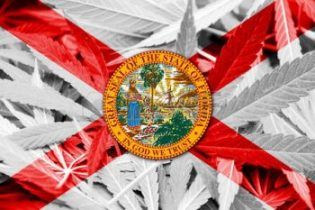In a move that could provide an even bigger boost to growers and retailers in one of the country’s fastest-growing markets, a Florida judge ruled the state’s ban on smokable medical marijuana is unconstitutional.
For now, though, nothing changes. The state department of health has appealed, and that automatically stays the decision.
Leon County Circuit Judge Karen Gievers on Friday said Floridians have the right to use any form of medical marijuana to treat debilitating medical conditions as recommended by certified physicians, including the “use of smokable marijuana in private places.”
“Florida for Care recently surveyed our members on this subject,” Ben Pollara, who runs the marijuana advocacy group, wrote in an email to Marijuana Business Daily on Tuesday.
If the ruling is upheld, Pollara concluded, a lot of patients who currently smoke marijuana illegally would see their doctors, get an ID card and purchase medical cannabis from licensed centers.
Even without a smokable product, Florida’s program has been growing rapidly and in April surpassed 100,000 registered patients.
The state’s health department was ordered last June to issue an additional 10 MMJ licenses on the top of the seven already granted, but not all those licenses have been awarded yet.
The Marijuana Business Factbook 2018 projects MMJ sales in Florida could reach $175 million-$235 million this year – or even more if the flower ruling holds. That’s an exponential increase from the state’s expected 2017 sales of $20 million-$40 million.
The Associated Press contributed to this report.





